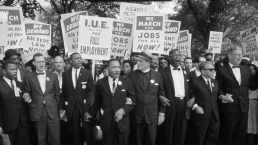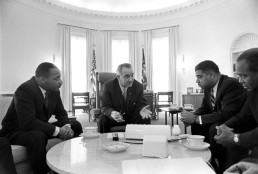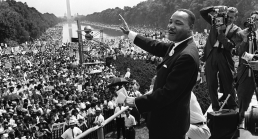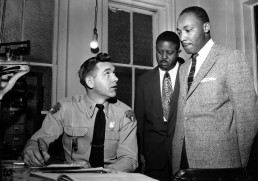STONE OF HOPE
Martin Luther King Jr. Memorial
Washington, D.C.
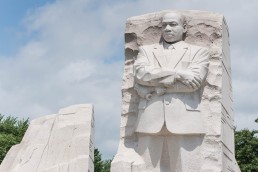
Today we remember Martin Luther King, Jr. We remember his stance on non-violence, his bravery in the face of racism. We remember the soaring rhetoric in his sermons and speeches that still inspire us. But we must also remember his words that continue to haunt us as a society.
Sitting in a Birmingham jail, he wrote his famous letter that troubles my soul and weighs on me to this day.
“The Negro’s great stumbling block in the stride toward freedom is not the …Ku Klux Klanner, but the white moderate who is more devoted to ‘order’ than to justice.”
For much of my personal and my professional life, I have sought to be moderate—to be a mediator who looks for the ‘golden mean,’ the middle way that allows sisters and brothers in Christ, who have real differences, to live and work in peace and harmony for the greater good of God’s kingdom. After all, the Apostle Paul tells us that moderation is a good thing: “Let your moderation be known unto all men.” (Philippians 4:5)
View of some of the leaders of the March on Washington for Jobs and Freedom on August 28, 1963, including (front row from left): John Lewis, Mathew Ahmann, Floyd B. McKissick, Dr. Martin Luther King Jr., Reverend Eugene Carson Blake, Cleveland Robinson and Rabbi Joachim Prinz. The march provided the setting for Dr. King's iconic 'I Have a Dream' speech.
But what if, in the historical moment, moderation collides with justice? What if our moderation perpetuates injustice? That is a deep and agonizing question for all of us.
When I read MLK’s poignant words about ‘white moderates’ I inevitably hear the echo of the prophet Micah: “He [God] has shown all you people what is good. And what does the Lord require of you? To act justly and to love mercy and to walk humbly with your God” (6:8). The prophet does not call us only to mercy and humility. Somehow justice, mercy, and humility belong together in a Christian social ethic. I think that is at least part of what MLK was telling us.
I don’t have easy answers amid the brokenness of our world. But neither can I ignore the call for justice, mercy, and humility. One small step in our journey as a theological seminary is to seek to live our missional identity by engaging in courageous conversations governed by our core values of charity, humility, integrity, mutual respect and excellence. Perhaps the collisions along our journey will shake us awake and lead to repentance, restoration and redemption.
Frank A. James III, DPhil, PhD
President and Professor of Historical Theology
Missio Seminary

